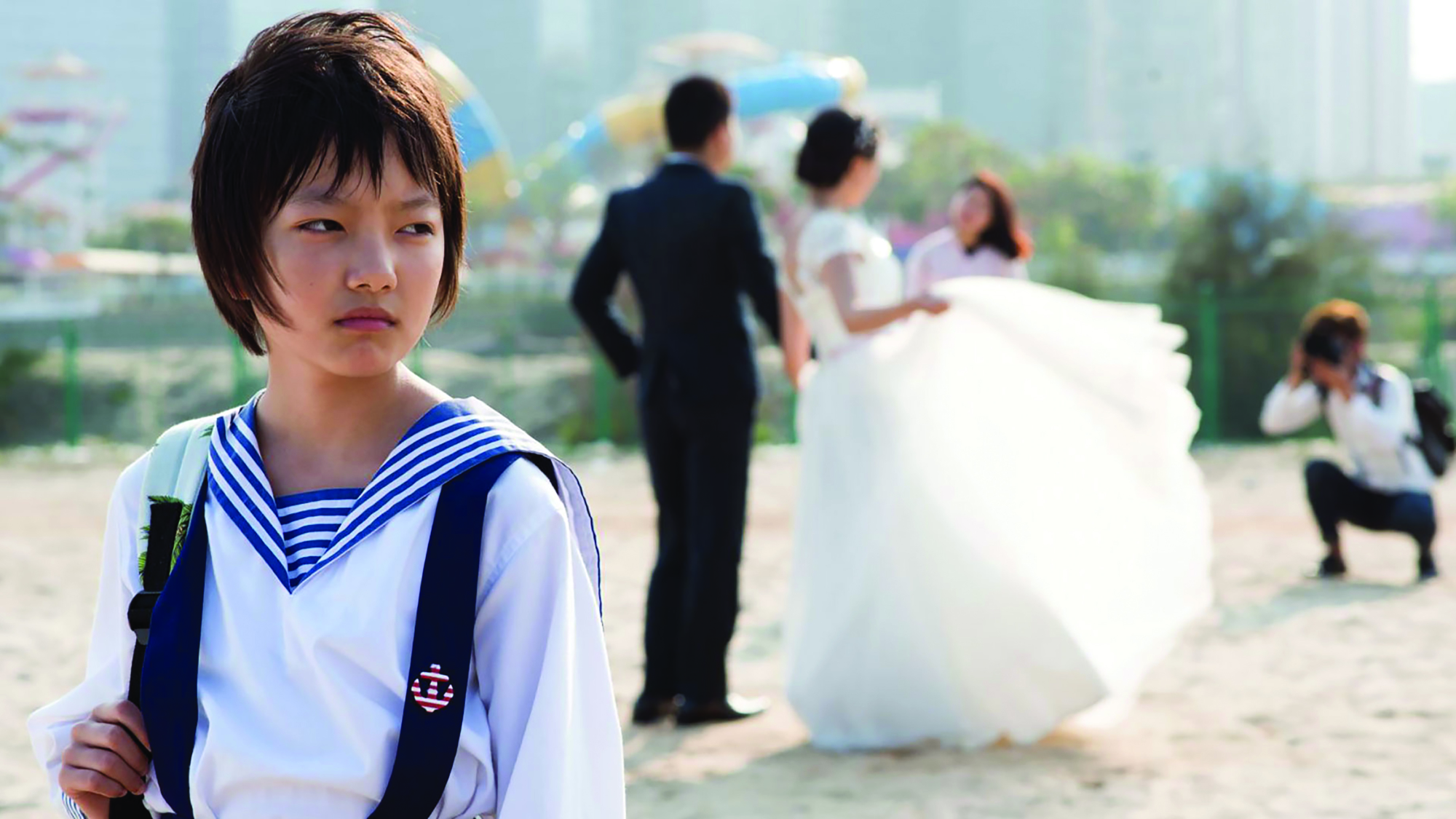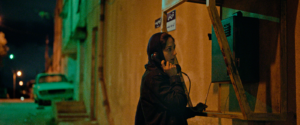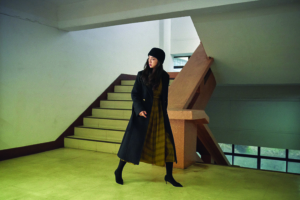‘I don’t want to be reborn as a woman. Not all over again.’
In Angels Wear White (2017), by Chinese writer/director Vivian Qu, receptionist Lily (Peng Jing) says this line between gasping sobs, keeling over in obvious agony. She is in a dingy hotel room after having her hymen surgically reconstructed; the pain that rips through her body is not just physical. A woman is taught that the biologically female body will tear at the point of first penetration – that the sharp pain of ‘virginity loss’ is a rite of passage, an inevitable part of sex. A woman is also taught that it is her responsibility to keep her virginity – and her vagina, if she has one – cloistered until marriage. This unmarried woman’s mutilated body is her throbbing shame to bear, and her problem to fix.[1]See Meredith Nash, ‘Reliving Virginity: Sexual Double Standards and Hymenoplasty’, The Conversation, 25 June 2013, <https://theconversation.com/reliving-virginity-sexual-double-standards-and-hymenoplasty-15307>, accessed 7 February 2018.
Qu cut her teeth in the film world as a producer, working with independent filmmakers including Diao Yinan (Night Train, 2007; Black Coal, Thin Ice, 2014) and Yin Lichuan (Knitting, 2008), before making her directorial debut with 2013’s Trap Street. Her sophomore feature, Angels Wear White, is an elegant daylight noir that moves between the parallel stories of two young girls in a sleepy seaside town in southern China. Xiaomi (Vicky Chen), or ‘Mia’ as she is frequently referred to in the film, is an adolescent hotel clerk without a government-issued Resident Identity Card. While working the front desk, she witnesses the beginnings of an assault unfolding on the hotel’s CCTV. While she doesn’t report the crime, she does film the incriminating footage – of high-ranking police commissioner Liu (Cao Yunqing) forcing himself on two twelve-year-old schoolgirls – using her phone.
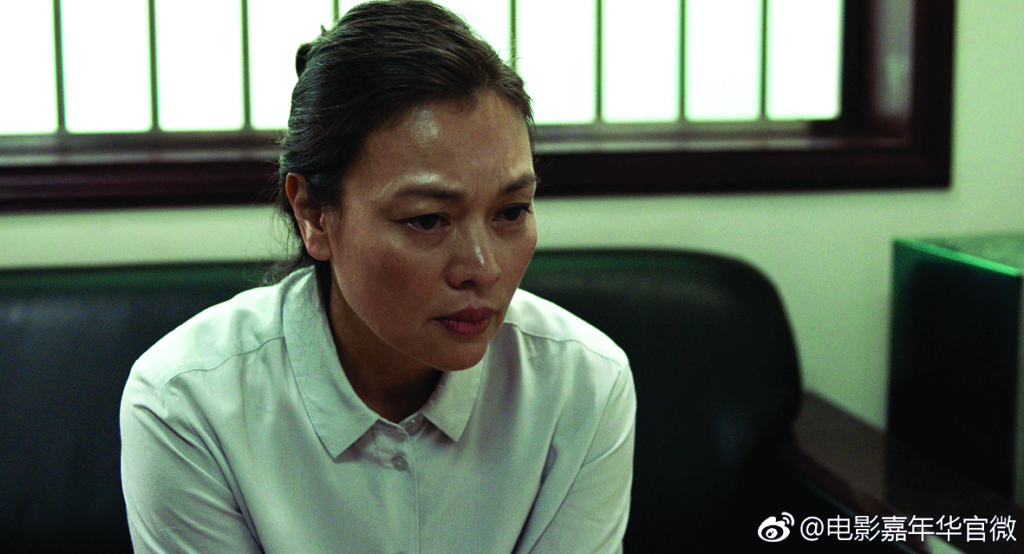
Angels Wear White is about endemic, bone-deep misogyny, not sisterhood. An undocumented migrant in desperate need of money for a fake ID is in too precarious a position to be thinking about anything other than her own survival. Later, a lawyer will grill her about the incident in exchange for cash during a conversation that takes place on the beach, literally putting Mia between a rock and a hard place.
The film follows both Mia and Wen (Zhou Meijun), one of the assaulted schoolgirls, in the aftermath of the crime. Qu is less interested in the sordid particulars of what happened in that hotel room than in the way it is – or, rather, isn’t – dealt with. The police, the parents, the doctors that examine Wen and her friend Xin (Jiang Xinyue) to confirm that both were raped … the film looks at both abuse and complicity from a variety of perspectives, sputtering and spitting with quiet rage.
This idea, that things look different from different vantage points, is literalised through the recurring image of a giant statue of Hollywood star Marilyn Monroe. In the film’s opening scene, Mia circles an enormous, high-heeled foot, grazing its red-painted toenails with her fingertips. As she walks between the statue’s bent, bare legs, the camera slowly pans upwards to reveal a ballooning, blown-up skirt. The view is a crotch shot. Mia snaps an upskirt photo on her phone, paparazzo-style. Though we don’t see the statue in full until much later in the film, it’s obvious that the exposed legs and billowing skirt belong to Monroe circa The Seven Year Itch (Billy Wilder, 1955). In an interview with Cineuropa, Qu explains that, while writing the script for Angels Wear White, she discovered a small town in southern China that ‘actually built a giant statue like that’. ‘After six months,’ she recalls, ‘it was destroyed because her skirt was too high.’[2]Vivian Qu, quoted in Marta Bałaga, ‘Vivian Qu • Director: “In China, We Don’t Talk About Sex”’, Cineuropa, 9 September 2017, <http://cineuropa.org/it.aspx?t=interview&l=en&did=334301>, accessed 7 February 2018.
In her 2004 biography The Many Lives of Marilyn Monroe, Sarah Churchwell writes: ‘We remember Marilyn in kaleidoscopic pieces’.
If she were a sonnet, Marilyn would be a blason, that dissection of a beloved object into pieces that Shakespeare famously mocked in ‘My mistress’ eyes are nothing like the sun.’[3]Sarah Churchwell, The Many Lives of Marilyn Monroe, Picador, New York, 2004, p. 24, emphasis in original.
Angels Wear White is about endemic, bone-deep misogyny, not sisterhood. An undocumented migrant in desperate need of money for a fake ID is in too precarious a position to be thinking about anything other than her own survival.
Those kaleidoscopic pieces – her bright blonde hair, black beauty mark, billowing white dress; her breasts thrust forward, buttocks thrust back; her wobbling, winding walk – are signifiers that make her synonymous with sex, perhaps to the point of cliché. Even with the briefest, most disembodied of glances, she is instantly recognisable.
In Angels Wear White, Monroe is chopped up: one shoe, two creamy legs, an inviting flash of underwear. In another scene, we approach the statue from behind, the camera tilting skywards to embody Wen’s point of view. She sits at the statue’s foot, her tiny body dwarfed by Monroe’s shoe. Later, Qu shows us the statue in full, defaced by graffiti and peeling flyers. Finally, we see Monroe being sawn open and physically dismantled by hard-hatted construction workers. We watch a hollowed leg lit with a blowtorch as men begin to melt the metal joins that hold her up. They lift her, light as air, and carry her off into the night. The movie star is invoked in Mia’s pleated white dress (and the way it flaps in the wind), worn in the film’s final scene, and in Wen’s rainbow bathing suit, whose striped swimming skirt puffs up around her waist like Monroe’s as she swims the length of an outdoor pool. Qu is fascinated by this image of Monroe, and what her frozen, beckoning pose has come to mean.
Howard Hawks was the first filmmaker to ‘cast Monroe in what would become her fixed type’, insists Churchwell. She writes that, in Hawks’ Monkey Business (1952), the actor plays ‘the dumb, childish blonde innocently unaware of the havoc her sexiness causes around her’.[4]ibid., p. 61. In Angels Wear White, Wen’s mother (Liu Weiwei) blames her for what happened: ‘You shouldn’t be wearing stuff like this,’ she screams, a pile of her daughter’s girlish dresses on the bedroom floor. ‘And your hair,’ she continues, ‘you don’t look like a schoolgirl.’ She then drags a weeping Wen into the bathroom, closing the door behind her. Qu cuts to Wen running her fingers through an ugly, uneven crop – a nod to Frank Perry’s Mommie Dearest (1981). In an act of revenge, she defiles her mother’s make-up cabinet, destroying a chalky palette of powder and pouring bottles of nail polish down the sink. All totems of femininity must be destroyed.
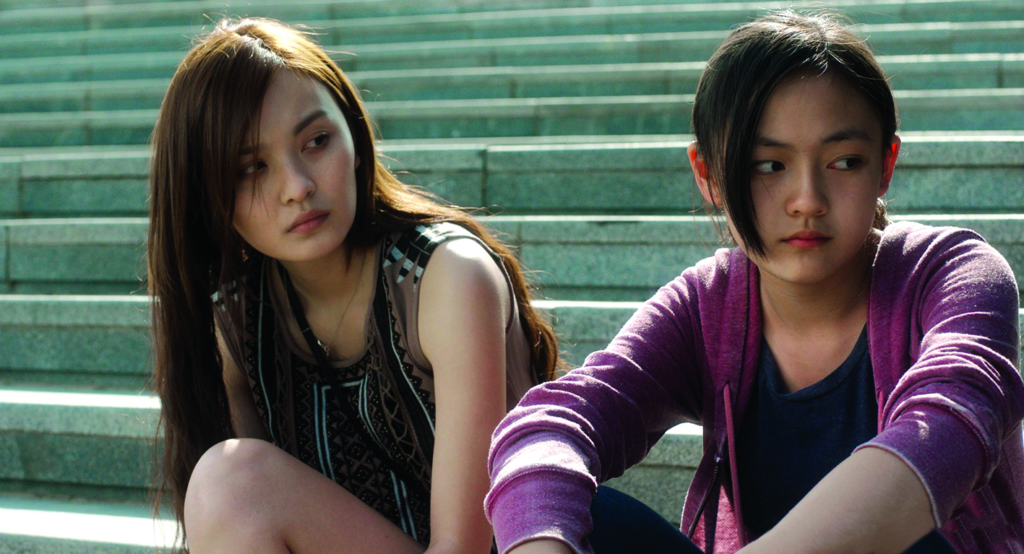
Qu draws attention to the way women are censured for courting male attention, as well as the way they are expected to retain sexual purity. As her film shows, virginity is a social preoccupation, and a financial bartering chip that can be both sold and bought. Lily visits a plastic surgeon who tells her that hymen reconstruction is a painless surgery that can successfully fool any premarital examination. After the procedure, she can barely walk, and has to be dragged up a flight of stairs. Elsewhere, we see Lily’s abusive boyfriend, Jian (Wang Yuexin), speculating about the status of Mia’s virginity; Wen alone on the beach as a bridal photoshoot takes place in the background; and recurring images of gates, open or closed. One of the film’s most chilling images is of Wen and Xin sitting in a hospital waiting room next to a third, empty seat. Feet dangling, Xin asks: ‘What’s a hymen?’
In his 1976 essay ‘Life Après Noir’, Larry Gross cited Alphaville (Jean-Luc Godard, 1965), Point Blank (John Boorman, 1967) and The Long Goodbye (Robert Altman, 1973) as a new wave of noir films that tried to both ‘shift from a psychological to a sociological analysis’ and ‘aggress against Hollywood narrative convention’.[5]Larry Gross, ‘Life Après Noir: Alienation in a Dark Alley’, Film Comment, July/August 1976, cited in Paul O’Callaghan, ‘Where to Begin with Neo-noir’, British Film Institute website, 2 February 2016, <http://www.bfi.org.uk/news-opinion/news-bfi/features/fast-track-fandom-where-begin-neo-noir>, accessed 7 February 2018. As the British Film Institute’s guide to neo-noir asserts:
While classic noir films often fixated on the complex psyches of their troubled protagonists, these later films were more outward-looking in their world view, reflecting the widespread mood of pessimism and distrust of authority that characterised the cold war [sic] era.[6]O’Callaghan, ibid.
Qu draws attention to the way women are censured for courting male attention, as well as the way they are expected to retain sexual purity. As her film shows, virginity is a social preoccupation, and a financial bartering chip that can be both sold and bought.
Qu keenly observes the troubled young women at the centre of the film, but doesn’t attempt to get into their heads. Belgian cinematographer Benoît Dervaux’s shooting style is curious yet coolly dispassionate – perhaps borrowed from his background in documentary filmmaking – while the film’s use of music is similarly pared back, with Wen Zi’s terse score used sparingly. By avoiding the lurching, technicolour visuals and overheated music of melodrama, Qu is able to emphasise the sociological, rather than psychological, ramifications of abuse. Instead of the noirish fog and shadowy, dark corners associated with the crime genre, the film’s world of open, seafront vistas is lit by a milky-white glow. Violence lurks unseen beneath the town’s peaceful, child-friendly exterior. Yet Angels Wear White still functions as a neo-noir, from its ‘wanton’ women to its hard-boiled cop (in this case, a tough female lawyer, Attorney Hao, played by Shi Ke) and seaside setting.
In 1949, at the age of twenty-two, Monroe posed for a nude calendar called ‘Golden Dreams’ for a fee of US$50. In 1953, Hugh Hefner bought the negatives for US$500 and used the photographs to launch Playboy magazine. Hefner would go on to become a millionaire. According to Churchwell, ‘Playboy explicitly sold Monroe’s body (without asking her permission, let alone offering payment) on its cover in order to sell itself.’[7]Churchwell, op. cit., p. 45. The ‘Golden Dreams’ photos remain a crystallisation of the many ways in which the actor and her body were robustly exploited.

‘You snuck a photo of me!’ shouts Wen at her male classmate, tackling him to the floor. Though Qu’s camera is aloof, her rage is combustible. Her visual approach might be restrained, but the film’s politics are less subtle (which is no bad thing): Monroe was exploited, and so are these girls. Qu captures them as they pad out of the hotel room barefoot, still in their school uniforms. It’s an image of clear-eyed innocence as stark as the blinding morning light they step into. Yet, even in plain sight, their mistreatment is ignored. When the girls arrive late to school that day, their teacher demands a ‘1000-word self-criticism, first thing tomorrow’. Lily’s black eye, courtesy of Jian, hidden beneath glamorous, bug-eye sunglasses (‘Was it because of me?’ asks Mia); Wen’s obvious bruises, and the slap she receives from her mother at the hospital; Mia’s split lip and kicked-in ribs as she begs to borrow a passer-by’s phone – Qu’s concern remains the traces left by violence, rather than the act itself. In one scene, Mia is chased by a gang of boys. Qu obscures the violence, choosing instead to hold on the image of her overturned bike as her screams ripple through the woods. The women in Angels Wear White are forced to wear their wounds in public – not that anyone is paying attention.
Although perhaps it is unfair to call these girls ‘women’, when Qu deliberately emphasises their youth. We see Wen and Xin playing in an adventure park’s tunnel, tiny against its swirled blue and yellow expanse. It is revealed that Mia, who has lived in fifteen different places, will turn sixteen in the summer (she doesn’t know her own birthday). Even Wen’s mother, a single parent, is depicted as youthfully negligent, admitting to the lawyer that she was out dancing until 2am on the night of the assault.
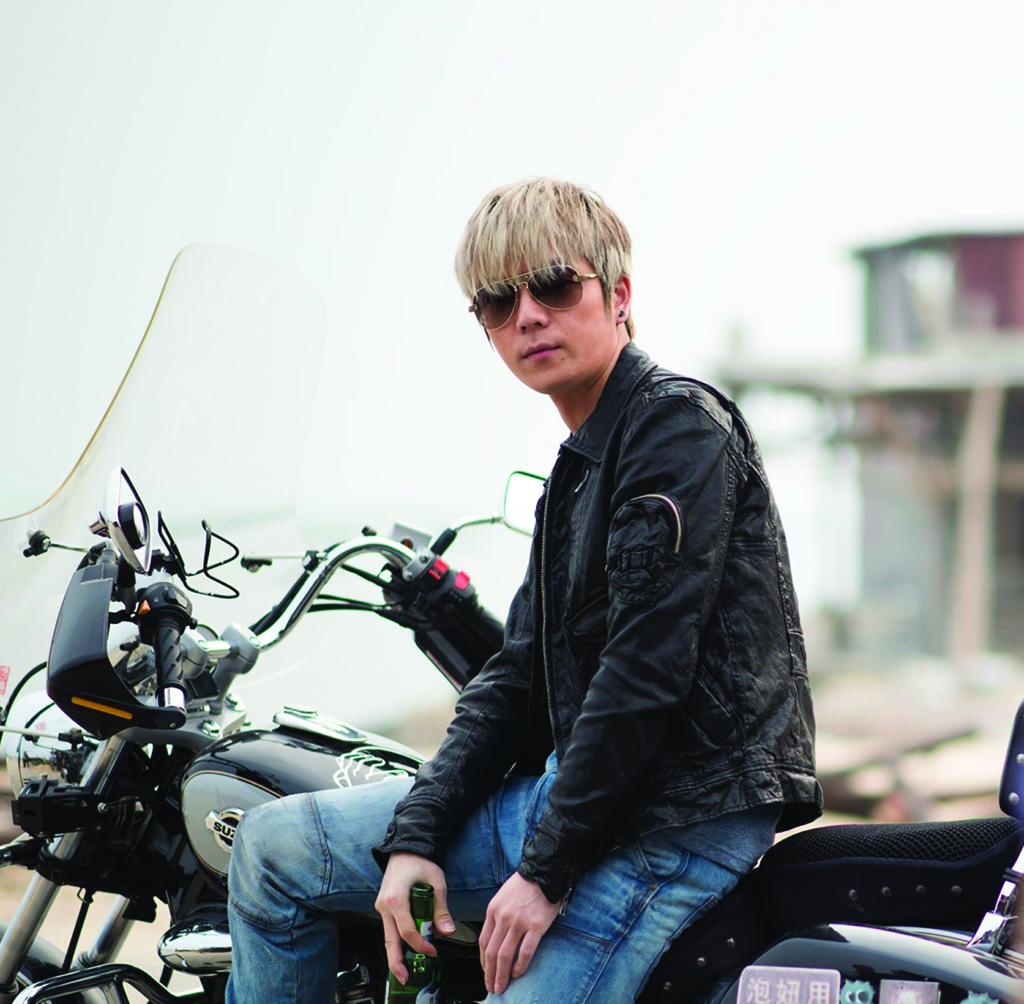
The crime that is the catalyst in Angels Wear White is not the crime the film is preoccupied with. It is the over-sights that led to it, and the elaborate cover-up that follows, that are framed as the gravest injustice. It is the sign above the police station that reads: ‘Serve the People’. It is Mia delivering beer to the girls’ hotel room, knowing that they are underage. It is the ID cards that Commissioner Liu is unable to present her with when the three check in to the hotel (‘They don’t have any, they’re kids,’ he says) – and the knowledge that, without her own form of identification, she’s unable to press him on the matter. It is a twelve-year-old forced to ask, ‘What’s a hymen?’ It is Lily paying to get her hymen reconstructed. It is Attorney Hao telling the girls’ parents that their injuries ‘aren’t enough to warrant an arrest’. It is the bribes, of new iPhones and private-school tuition, that Xin’s bourgeois parents accept in exchange for not pressing charges. It is Wen’s mother, taking a pair of scissors to her daughter’s long hair. It is Jian offering Mia a price for her virginity, and instructing her to ‘never keep the client waiting’. It is Wen, in a hospital gown with her feet in stirrups, being prodded by four expert gynaecologists. It is the same gynaecologists – shot from a fixed point at the side of the room – who announce to a cohort of journalists that Wen and Xin had not been raped. It is Wen’s dangling bare feet and the tears that stream silently down her face.
Qu invites her viewers to bear witness to this blunt injustice – and blatant collusion. There is no turning point, no penny-drop moment. Just a room of empty hospital beds, white sheets ruffled by the breeze that sweeps through an open window.
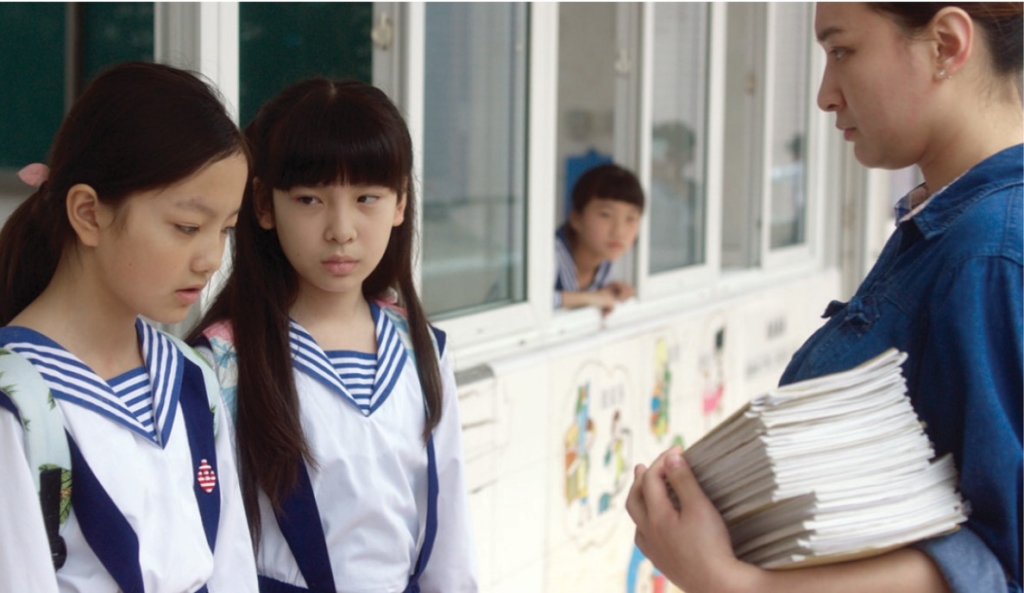
In an interview with Film International, Qu talks about how she ‘learned a lot’ from French filmmaker Robert Bresson and his ‘elliptical’ storytelling.[8]Vivian Qu, quoted in Tom Ue, ‘Noir en Blanc: Vivian Qu on Angels Wear White (TIFF)’, Film International, 9 October 2017,<http://filmint.nu/?p=22576>, accessed 7 February 2018. It’s fitting, then, that Angels Wear White has an ending that mirrors its opening. Face-on, Mia, wearing a pleated white dress not unlike Monroe’s, soars down the highway and away from the beach on a baby-blue motorbike. The image offers a flicker of hope, the suggestion of a redemptive ending for at least one of the film’s characters. But, as the camera moves behind Mia, to track her, we see the road from her point of view. Our eyes are drawn to Monroe’s statue, strapped to a truck and headed for the tip. We’re still looking up her skirt.
Endnotes
| 1 | See Meredith Nash, ‘Reliving Virginity: Sexual Double Standards and Hymenoplasty’, The Conversation, 25 June 2013, <https://theconversation.com/reliving-virginity-sexual-double-standards-and-hymenoplasty-15307>, accessed 7 February 2018. |
|---|---|
| 2 | Vivian Qu, quoted in Marta Bałaga, ‘Vivian Qu • Director: “In China, We Don’t Talk About Sex”’, Cineuropa, 9 September 2017, <http://cineuropa.org/it.aspx?t=interview&l=en&did=334301>, accessed 7 February 2018. |
| 3 | Sarah Churchwell, The Many Lives of Marilyn Monroe, Picador, New York, 2004, p. 24, emphasis in original. |
| 4 | ibid., p. 61. |
| 5 | Larry Gross, ‘Life Après Noir: Alienation in a Dark Alley’, Film Comment, July/August 1976, cited in Paul O’Callaghan, ‘Where to Begin with Neo-noir’, British Film Institute website, 2 February 2016, <http://www.bfi.org.uk/news-opinion/news-bfi/features/fast-track-fandom-where-begin-neo-noir>, accessed 7 February 2018. |
| 6 | O’Callaghan, ibid. |
| 7 | Churchwell, op. cit., p. 45. |
| 8 | Vivian Qu, quoted in Tom Ue, ‘Noir en Blanc: Vivian Qu on Angels Wear White (TIFF)’, Film International, 9 October 2017,<http://filmint.nu/?p=22576>, accessed 7 February 2018. |
